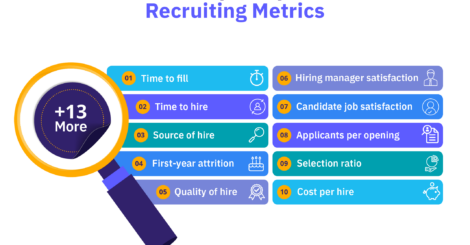Comparing the Pros and Cons of Different Interview Formats

With the rise of technology, the way hiring managers recruit and screen candidates has shifted dramatically. Whereas not too long ago a real person would review every paper resume and call up candidates personally to invite them for an interview, AI and innovative programs have taken over many of these processes.
Interview formats have also expanded to include a range of digital options.
Today, more and more large corporations are opting for technologies that help streamline and shorten candidate screening processes. Even administrative tasks like interview scheduling are easily done by AI programs (think of chatbots for instance).
With so many new technologies and options out on the market, how do you know which interview format – or combination of formats – to choose? Costs and time are obvious determinants but don’t sacrifice candidate experience.
The Influence of Interviews on the Candidate Experience
Would you rather speak to your potential boss during an interview or go through a generic round of interview questions with an HR manager you’ll never see again? How would you feel if asked to complete a one-way video interview to be screened by a computer?
The way you interview candidates does more than just save costs and time. It impacts the way candidates perceive your company and how valued they feel as potential employees before even signing an offer letter.
As a result, interview processes can make or break an employer brand. Recruiting is very much a competition between companies and competitors can easily steal away top talent turned away by unpleasant application experiences. Moreover, social media and company review sites like Glassdoor mean candidates who have had a bad experience can easily share it.
In fact, a 2015 LinkedIn report revealed that 83% of talent says a negative interview experience has changed their mind about a role or company they once liked. Similarly, 87% reported that a positive interview experience flipped their negative perception of a company. Virgin Media is a real example of a company that changed its bad candidate experience around after its subpar interview process was costing over $5 million in lost sales from canceled subscriptions.
A closer look at different interview formats
Clearly, the interview process is important to employers and candidates alike. So how do different interview formats measure up for each side? Is one type of interview better than the others, or does it all boil down to the questions asked and other application components?
Let’s take a look.
Phone Interviews
Pros: Phone interviews are a quick and cost-effective way to prescreen candidates. Candidates can take the call from a comfortable and familiar environment of their choice, easing some initial anxiety. They can also have information, such as the company website or a job description, in front of them as they chat.
Cons: A lack of body language and facial expressions can make the situation harder to read for both sides. Short time slots also make it difficult to build an in-depth conversation.
Video Call Interviews
Pros: Video calls are a great option for screening remote candidates who are unable to travel to the interview site. Given the correct technology and required internet connection, a video interview can be as effective as an in-person interview because of the exchange in visuals and eye contact. Unlike phone interviews, video interviews are great for getting a feel of the candidate’s energy and the way they present themselves.
Cons: The reliance on technology from both sides can open the doors for unexpected technical problems that can interrupt or distract from the interview. Poor video quality and lagging are other factors that can take away from the context being discussed and make it hard to build a rapport. Candidates at locations with a poor internet connection would be at a disadvantage.
Prerecorded One-Way Interviews
Pros: Like phone interviews, prerecorded one-way videos are a good option for pre-screening candidates. However, candidates can record prerecorded videos on their own time, sometimes with as many takes as they need until they are satisfied with the results. Hiring managers get the luxury of reviewing the videos on their own time and can get a feel for the candidate’s personality and sincerity.
Cons: Speaking to a camera is awkward, and those not accustomed can feel unnatural and at a disadvantage. With standard, inflexible questions, interviewers can’t customize questions according to each candidate and run the risk of receiving very similar answers. This format also feels very “cold” and impersonal, creating the impression that your company doesn’t have the time or desire to get to know candidates.
In-Person One-on-One Interviews
Pros: This is the most common type of interview, making the format and types of questions more predictable and comfortable for the candidate. He or she can get to know the office, some potential team members, and get a glimpse and feel of the open position.
Cons: Candidates can’t refer to notes during an in-person interview and must be on their A-game during the entire visit in dress and behavior. This can put stress on some people who don’t perform well under pressure. Interviewing several in-person interviews is time-consuming for the interviewers, especially if he or she has other responsibilities outside of hiring.
Round Robin Interviewing
Pros: Because this interview format involves numerous interviews by several people after each other, there are several opportunities for different people to gauge the candidate. Rather than depend on a single or few opinions, this type allows for less bias and a better-rounded view of the candidate.
Cons: Round robin interviewing is very time intensive for both sides, especially when done for a number of candidates. Because of the sheer amount of people involved, these interviews can also be costly. A whole-day affair requires candidates to be constantly “on” and can be exhausting.
Conclusion
Typically, screening processes involve more than just a single interview or format. By analyzing budgets and allotted time for each candidate, hiring managers can formulate the best process for each position. There’s no perfect solution to identify your dream candidate, but looking at the advantages and disadvantages of each interview format will help figure out the most effective method which will often consist of a combination of several interview formats and technology.
The main success of an interview is mostly determined by its structure and content, so don’t forget to pair interview formats with great questions!
Weekly update
Stay up-to-date with the latest news, trends, and resources in HR
Learn more
Related articles
Are you ready for the future of HR?
Learn modern and relevant HR skills, online











